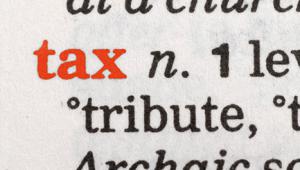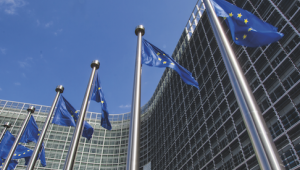The row came as Oxfam said it had investigated RB’s tax arrangements and as a result the company had “backed a public campaign for tougher tax laws after an Oxfam investigation suggested that poor countries are losing valuable revenue needed to tackle poverty due to its tax practices”.
Oxfam urged other companies to follow RB’s lead and publish voluntarily information about their tax practices in each.
Deepak Xavier, head of Oxfam International’s Even It Up campaign, said: “RB’s support for greater tax transparency is welcome. A fairer, more transparent tax system is good for business and good for society as a whole.
“Companies like RB can play an important role in tackling poverty – but this potential can only be realised if they pay their fair share of tax in every country where they do business, and not where they can negotiate a smaller bill.”
Oxfam’s investigation found that what RB terms ‘developing markets’ may have lost as much as £60m in revenue due to the company’s tax practices, something RB strongly denied.
The charity said RB had created regional hubs in three corporate tax havens – the Netherlands, Singapore and Dubai – allowing it to significantly reduce its global tax rate.
Its analysis of RB’s financial statements showed profits suddenly plummeted in markets such as France and Australia following the creation of the hubs, despite revenues remaining broadly stable.
Oxfam said, for example, that RB’s profits and revenue in the Netherlands hub were one third the size of the RB Group’s total, and would make its employees 100 times as productive as the group average.
It estimated that in 2013-15, RB avoided tax equivalent to £66.2m in France, £71.3m in Australia, £22m in Belgium and £7.4m in New Zealand. Oxfam said RB had done nothing illegal.
RB, formerly known as Reckitt Benckiser, said in a statement that the company had supported Oxfam’s call for governments to accelerate public country-by-country reporting to create a level playing field for all businesses.
It said it would file its first country-by-country tax return to the UK’s HMRC by December.
But it added that some of the data would be commercially sensitive and compromise RB’s competitiveness if published.
“Of course if all companies would be legally required to publish this data publicly, we would fully comply,” the statement said.
RB said it paid the correct tax in each country. “We strongly refute the assertion made by Oxfam that RB’s decision made in 2012 to locate its regional ‘business headquarters’ in the Netherlands, Dubai and Singapore was driven principally by tax avoidance,” RB said.
“Rather this restructuring was motivated by our desire to ensure that our business was organised to be close to our customers and consumers.”
The company said it would also “strongly refute any link between our tax structure and the assertion that we seek to avoid taxes in developing countries that could otherwise have been invested in public health and education.
“None of our business operations are in any way linked to tax avoidance in developing countries.”
Earlier this month, the European Parliament backed measures to bring in country-by-country reporting for companies’ tax affairs. However, there is some way to go before they become EU law and the ability to grant exemptions has been included for reasons of commercial confidentiality.













